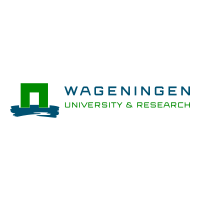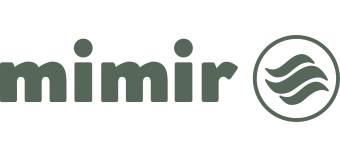
Vacatures geplaatst door Wageningen University & Research
Mimir verzorgt het geautomatiseerde beheer van vacatures op vacaturebanken voor Wageningen University & Research.
Laatste vacatures
Onderzoeksassistent Productkwaliteit
Als Onderzoeksassistent Productkwaliteit ben je betrokken bij ons sensorisch panelonderzoek aan versproducten zoals tomaat, aardbei, komkommer en andere gewassen. Dit betreft afnemen van basissmaaktesten en experttesten, uitnodigen van panelleden, voorbereiden van smaaktesten in EyeQuestion en EyeContact, de ondersteuning van paneltrainingen, bijhouden van databestanden voor de uitbetaling van panelleden, en voorbereiden en begeleiden van panelavonden. Daarnaast doen we houdbaarheidstesten waarbij we de kwaliteit van versproducten evalueren tijdens het bewaren ervan.
Jouw taken en verantwoordelijkheden als Onderzoeksassistent Productkwaliteit zijn:
- Organiseren en uitvoeren van basissmaaktesten en experttesten met een smaakpanel;
- ondersteunen van paneltrainingen;
- organiseren en uitvoeren van houdbaarheidstesten voor versproducten;
- uitvoeren kwaliteitsmetingen;
- uitvoeren metingen in andere laboratoria en kasexperimenten indien nodig.
Jouw team
Jij gaat samenwerken met andere collega’s (onderzoekers en onderzoeksassistenten) van de groep Productkwaliteit in het uitvoeren van sensorische smaaktesten en houdbaarheidsonderzoek. Je werkt intensief samen met veredelingsbedrijven en telers die hun producten door panels laten testen. De groep is onderdeel van het team Gewasfysiologie en Productkwaliteit met ongeveer 20 medewerkers. We onderzoeken verschillende aspecten van de productie en kwaliteit van kasgewassen.
Hier ga je werken
Wageningen University & Research, Business Unit Glastuinbouw is het internationaal leidende instituut voor contractonderzoek voor de glastuinbouw. We focussen ons op innovaties. Samen met partners uit de industrie, de wetenschap en de overheid analyseren we vragen op het gebied van kasontwerp, gewasmanagement en teelt en vertalen dit in toegepast onderzoek en innovatie. De Business Unit Glastuinbouw heeft ongeveer 160 medewerkers en zeven onderzoeksgroepen:
- Greenhouse technology
- Greenhouse automation and Robotics
- Crop health
- Physiology and product quality
- Root zone dynamics
- Crop management and cultivation
- Greenhouse facilities horticulture
AcademicTransfer
0 sollicitaties
0 views
08-07-2025 Wageningen University & Research
PhD position: Effectiveness of freshwater wetlands as climate buffers for biodiversity gain and ecosystem services
Are you interested in studying the effectiveness of freshwater wetlands as climate buffers for biodiversity gain and ecosystem services and do you have the necessary analytic skills?
We are looking for a motivated PhD candidate to join our research team on wetland and wildlife ecology with a focus on understanding how effectively climate buffers in the form of freshwater wetlands, are as a nature-based solution, for climate change adaptation, biodiversity gain, and other ecosystem services to people.
Key responsibilities:
- Analyse biodiversity data of birds, plants and insects from newly created freshwater wetlands in The Netherlands to investigate their contribution to biodiversity recovery in relation to their specific properties; collect additional biodiversity data where necessary;
- Conduct research to determine the ecosystem services that these freshwater wetlands are providing, from a diversity of resources, including databases, administrative documents, satellite imagery, interviews with stakeholders and field measurements where necessary;
- Integrate empirical data analysis including ecological, sociological and economic parameters into a synthesis of the effectiveness of freshwater wetlands as climate buffers to provide biodiversity recovery and ecosystem services; conceptualize these as ecosystems of the future and investigate the opportunities and constraints on scaling up the application of freshwater wetlands as climate buffers elsewhere at the national and international level;
- Publish research findings in peer-reviewed journals and present them at national and international conferences;
- Mentor BSc/MSc students.
About NL2120
NL2120 is a program in which science, business, nature organizations and education work together to gain knowledge about natural solutions (Nature-based Solutions) and about how to scale them up. The ambition of NL2120 is to stimulate the use nature (Nature Based Solutions) as a solution for social challenges, such as climate adaptation and multiple claims on scarce land.
As one of the largest public-private partnerships in the field of Nature-based Solutions in the world, NL2120 works on gathering and scaling up knowledge, connecting theory and practice and drawing up feasible future perspectives. So that organizations, including governments, water boards, provinces, (construction) companies and ultimately also individual citizens, know how they can put nature-based solutions into practice.
We analyse and answer questions from different perspectives:
- Physical-ecological: How effective are Nature-based Solutions and how can they be applied in a changing climate?
- Socio-economic: What are the costs and benefits of (large infrastructural) Nature-based Solutions for society and broad prosperity?
- Institutional: How do we ensure good cooperation between sectors and integration in regulations when applying Nature-based Solutions?
AcademicTransfer
1 sollicitatie
0 views
07-07-2025 Wageningen University & Research
Data Platform Specialist
Bring Structure, Clarity, and Direction to a Data-Driven Policy and Research Environment
Are you analytically strong, enjoy creating order within complex data flows, and a team player who connects people to move forward together? Do you like working at the intersection of technology, content, and organization? Then we are looking for you.
We manage and develop a data platform that collects information on agricultural practices, sustainability, economic performance, and environmental impact. This data is used for national and European policy, scientific research, and statistics.
The playing field is complex: you’ll work with many systems, chains, data sources, and stakeholders – from developers to researchers, from architects to end users. Within the team responsible for the platform, we are looking for a Data Platform Specialist who brings structure to information models and processes, and helps develop clarity and ownership.
You will contribute to organizing data flows, ensuring information is available in the right place, and fostering shared understanding of what we do – and why. You ensure that existing models stay up to date and that disruptions are quickly resolved: if the platform goes down, we need to act immediately – otherwise, 60 colleagues are unable to work.
What will you do?
- Model and structure data: entities, attributes, and their relationships.
- Document and analyze data collection and processing workflows.
- Set up data structures, screen configurations, and validation rules within the platform.
- Setting up data pipelines for various sources.
- Integrate external data sources into the system.
- Identify bottlenecks and monitor data quality.
- Improve workflows and documentation in collaboration with stakeholders.
- Act as an ambassador: explain, collaborate, and foster insight and ownership.
- Serve as a bridge between users, operations, architecture, and development.
During the migration phase, you will work with two systems, learn how they function, and help build a reliable transition to the new platform.
AcademicTransfer
1 sollicitatie
0 views
03-07-2025 Wageningen University & Research
Senior Fullstack Softwareontwikkelaar
Contribute to an Advanced Data Collection Platform for Policy and Sustainability
Do you have a keen eye for software architecture, technical depth, and social relevance? Would you like to contribute to a platform that will become the backbone for policy data on agriculture? Then we’d love to meet you.
We are building a new, modern platform that collects information on sustainability, business operations, and environmental impact in the agricultural sector. This data is essential for policy-making, research, and European reporting.
At its core, the system is a metadata-driven data management platform, linked to a low-code user interface engine. This enables us to create dynamic forms, automatic validation, and smart workflows. AI applications – such as integration of LLM technology (e.g., GPT/OpenAI) – are on the roadmap.
As a Senior Fullstack Software Developer, you’ll play a key role in the technical development. You will work in a multidisciplinary scrum team alongside data, platform, and domain specialists.
What will you do?
- Build full-stack functionality with a modern JavaScript frontend (preferably Vue.js).
- Develop a rule engine in C#, using design patterns such as the Visitor pattern.
- Design and implement RESTful APIs.
- Contribute ideas on the use of LLM technology (such as GPT).
- Work in a scrum team with plenty of room for technical input.
AcademicTransfer
0 sollicitaties
0 views
03-07-2025 Wageningen University & Research
Project Manager Maintenance
Are you an independent technician with a heart for sustainable technology and the ambition to grow? In this varied position as Project Leader Maintenance (Mechanical Engineering) at Wageningen University & Research, you will have the space and the confidence to make mechanical installations in complex buildings — from laboratories to teaching spaces — future-proof. Curious? Read on!
No day is the samein this versatile position as Project Manager Maintenance. You pick up replacements and expansions and actively contribute to sustainable improvements. You also contribute to the multi-year maintenance plan (MJOP) and ensure that the plans you draw up are actually implemented later. You independently plan your projects, request quotes and manage contractors during implementation. In doing so, you keep an eye on safety and smooth cooperation with colleagues, such as technical administrators and location managers.
You will work in a friendly and expert team within the Facilities and Services department, where everyone helps each other and works together on smart, sustainable solutions.
Your most important tasks:
- You ensure that maintenance and replacement of installations are properly prepared, planned and carried out;
- You keep in touch with contractors and advisors and make sure everyone knows what needs to be done;
- You pay attention to safety and prevent nuisance during the work;
- You check reports of inspections and ensure that errors are resolved;
- You contribute to the maintenance planning and the budget for the coming years (MJOP);
- For buildings outside the campus, you are the point of contact for maintenance and malfunctions.
Your team
You will be working in the Construction & Housing Management team of Wageningen University & Research. Together we take care of the buildings and installations, such as laboratories, heat pumps and smart technology. Everything has to be sustainable and future-proof – we even want to get rid of gas completely within two years!
You will join a nice and friendly team of about 20 colleagues. We work together with experts in engineering and construction. The atmosphere is informal, there is time for a joke and we occasionally organize a drink or outing. You work on a modern campus, with nice workplaces, good coffee and green spaces to consult or relax.
Watch an impressionof our last Meet-Up here. This will give you an even better picture.
AcademicTransfer
0 sollicitaties
0 views
02-07-2025 Wageningen University & Research


